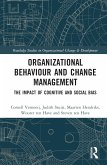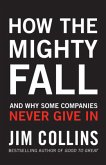Central to the issue of improving project performance is the application of deterministic, probabilistic processes, and techniques to reduce human error. To that end, we as project managers often endeavour to implement and follow a project management methodology in the belief that we can reduce the scope for emerging ambiguous requirements, ill-matched resource needs and availability, contractual and funding constraints, and other unwanted uncertainties. However, such 'self-evidently correct' processes are not without their limitations.
The management of uncertainty needs to be viewed not from a procedural, 'stand-alone' perspective but from a behavioural, people-driven perspective - that is, Mindfulness. Mindfulness is a project-wide human capability to anticipate key events from emerging trends, constantly adapt to change, and rapidly bounce back from adversity. Resilient project managers are forward-thinking and able to foresee relevant scenarios that are likely to occur and which may have damaging effects on performance. We strive to be prepared for the best but also for the worst, and learning is nurtured and encouraged. We believe that with purpose, whatever uncertainty hits us, and regardless of the damage caused, we can prevent a crisis from happening in the first place. When a crisis occurs, we can recover and bounce back from shocks, quickly restoring 'normal' management.
This book goes beyond commonly accepted standards in project management and looks past mere compliance to determinism and probabilistic approaches to managing uncertainty. Relying on the power of mindful thinking, it identifies an art to manage uncertainty.
The management of uncertainty needs to be viewed not from a procedural, 'stand-alone' perspective but from a behavioural, people-driven perspective - that is, Mindfulness. Mindfulness is a project-wide human capability to anticipate key events from emerging trends, constantly adapt to change, and rapidly bounce back from adversity. Resilient project managers are forward-thinking and able to foresee relevant scenarios that are likely to occur and which may have damaging effects on performance. We strive to be prepared for the best but also for the worst, and learning is nurtured and encouraged. We believe that with purpose, whatever uncertainty hits us, and regardless of the damage caused, we can prevent a crisis from happening in the first place. When a crisis occurs, we can recover and bounce back from shocks, quickly restoring 'normal' management.
This book goes beyond commonly accepted standards in project management and looks past mere compliance to determinism and probabilistic approaches to managing uncertainty. Relying on the power of mindful thinking, it identifies an art to manage uncertainty.








